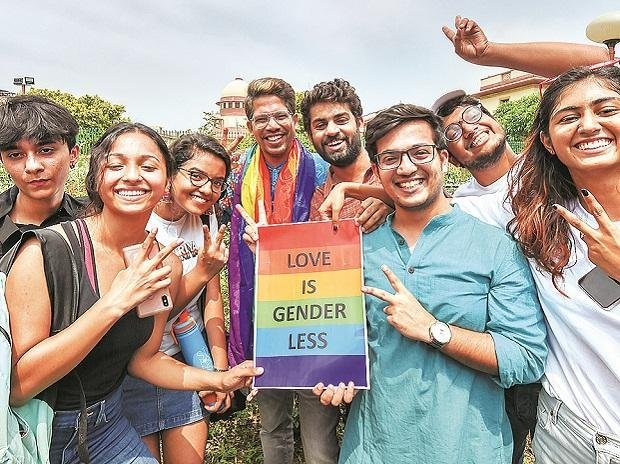India at the Brink: Will Same-sex Marriage Finally Become Legal?
In 2018, queer India celebrated the historic repeal of Section 377. It wasn’t just a legal victory it was a promise that love would no longer be criminalised. But decriminalisation was never the finish line. The next frontier? Marriage equality. Today, lawyers Menaka Guruswamy and Arundhati Katjusha led the fight against 377are pushing for India to recognise same-sex marriage. Their campaign, The Marriage Project, is more than legal jargon it’s about dignity, love, and the right for LGBTQ+ couples in India to dream of futures built together.
From Decriminalisation to Marriage Equality
When Section 377 was struck down, it was a watershed moment. Yet, five years later, queer couples still find themselves locked out of the legal protections straight couples take for granted inheritance, adoption, hospital visitation, joint property rights.
That’s where The Marriage Project steps in. Guruswamy sums it up:
“Whether gay or straight, Hindu or Muslim, upper caste or lower caste, male or female all want the same thing: a lasting long-term relationship recognised by society and the law.”
Marriage equality is not “special rights.” It’s about equal rights.
The Couple Leading the Charge
If 2018 gave us heroes, 2019 revealed their love story. Guruswamy and Katja, once only seen as the fearless lawyers who helped dismantle 377, came out publicly as a couple. Overnight, they redefined what #CoupleGoals could mean in India partners in love, partners in justice.
Their victory was deeply personal. As Katja shared, finding petitioners willing to risk it all for 377 was nearly impossible. Yet their persistence reshaped history not only in India but globally. Their win has since inspired challenges to antilights laws in places like Kenya.
The Groundwork Has Begun
Queer couples aren’t waiting for the courts they’re already building families. In Kerala, Sonu and Nikesh married in a traditional ceremony and filed a petition demanding legal recognition. They’re not alone. Across India, couples are approaching courts, demanding their unions be recognised under the Special Marriage Act.
These petitions force the nation to reckon with a simple truth: LGBTQ+ people are not asking for approval they’re demanding equality under the Constitution. And as Guruswamy points out, India’s young people are leading the fight with courage and impatience.
Why Legalising Same-sex Marriage Matters
For a country as diverse as India, marriage equality isn’t symbolic it’s practical. Without it, queer couples face systemic exclusion in everything from taxation to medical emergencies.
Legal recognition will mean:
- Equal inheritance and adoption rights
- Joint property ownership and financial security
- Protection in times of medical crisis
- Social legitimacy that helps fight stigma
It will also signal that Pride in India is not seasonality’s constitutional.
Love is Inevitable
The fight for marriage equality in India is far from over, but it is unstoppable. Guruswamy and Katja’s story shows us that love and law are not enemies Hey can be allies in building a freer, kinder country. Whether in courtrooms or living rooms, queer India continues to demand what it has always deserved: the right to love openly, and to build a future on equal terms.
Because when love wins, India wins.







